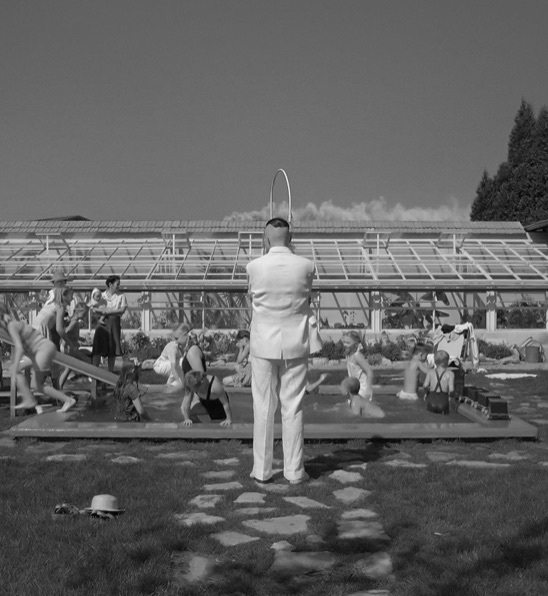
When one does not eat for a long time (I once went five days), one remembers all the wonderful meals he has spent a lifetime eating. The Zone of Interest has the same effect. I sat in the theater thinking about all the wonderful activities I have done in my life. By the time the movie ended, I had barely scratched the surface of my memory; everything I have ever done is more interesting than The Zone of Interest. It makes even the driest of academic lectures seem titillating. I had an infinite amount of memories to recall.
The Zone of Interest seems new and important to those who are not familiar with the entertainment staple of the past 2,000 years: the book. We follow the commandant of Auschwitz and his family as they show love for each other that masks the brutality around them. The movie is a childish derivative of Hannah Arendt’s classic work Eichmann in Jerusalem: A Report on the Banality of Evil. The text, which I read in 7th grade (and I am not precocious, which thus says something about the intelligence of the average A24 fan), argues that, while Eichmann deserved execution, his actions constituted “banality” because he was not an essentially evil man and instead did not question his actions.
This movie asks us to question the nature of our reality and realize which concentration camps we are willfully ignoring. This has the potential to be fascinating, but it is not. This movie is boring. I cannot say it otherwise. It reminds me of Ivy League classroom discussions: everything has been said, but not everyone has said it. What this movie does to the viewer constitutes the banality of evil.
One could argue, and indeed many critics have argued, that this film is extremely original in the way it fails to use any tropes from Holocaust movies: one does not see any murder, there are not the same heart-wrenching scenes, there is little one remembers from the surplus of Holocaust films that flood Jewish film festivals at most major Metropolitan American cities. Yet by throwing out all that was supposedly a “trope,” the movie was left only with filler. It is as if one read only the margins of a book that had no annotations to begin with.
There are some points of praise. Visually, the movie tells an effective story. A striking shot shows smoke above a garden of children playing. The shot serves as a perfect encapsulation of what it means to be a bystander. Yet judging other shots one realizes just how vacuous this movie is. The ending shows cleaners at Auschwitz in the same spot as the commandant in a previous shot. What is this trying to indicate? That workers are the new Jews? That this movie “dusts off” the memory of the Holocaust? Unclear. No matter—it is a pointless ending.
I was told to watch this movie because it was “incredible.” Reading some negative reviews comforted me that not everyone is an absolute moron. But most people are! H.L. Mencken was right: this is a country of cretins. Maybe I am not the target audience because I know more than absolutely nothing about the Holocaust.What kinds of movies should we be making about the Holocaust? Maybe none—we should stop. There is such a thing as an over-abundance. Is there something new to say on Abraham Lincoln after over 7,000 biographies on that president? No. That should not stop us from learning about this important man. However, it should stop us from wasting our time writing another book about him. This movie makes me think that the marginal Holocaust film director should instead learn C and do some programming. That would help the world!

Be the first to comment on "Hop Film: The Zone of Interest"